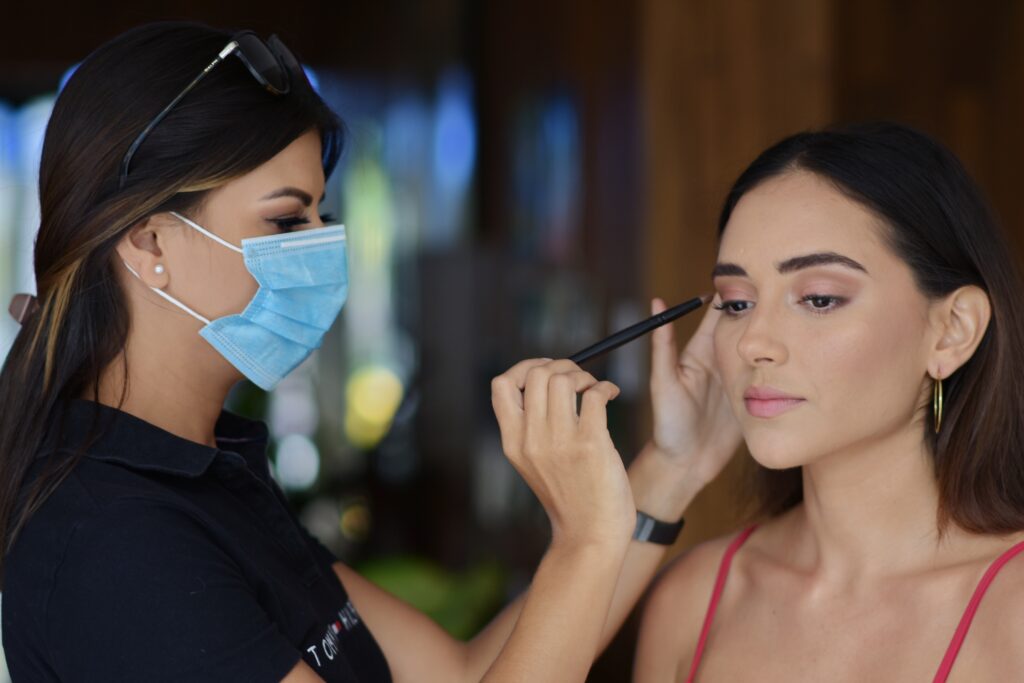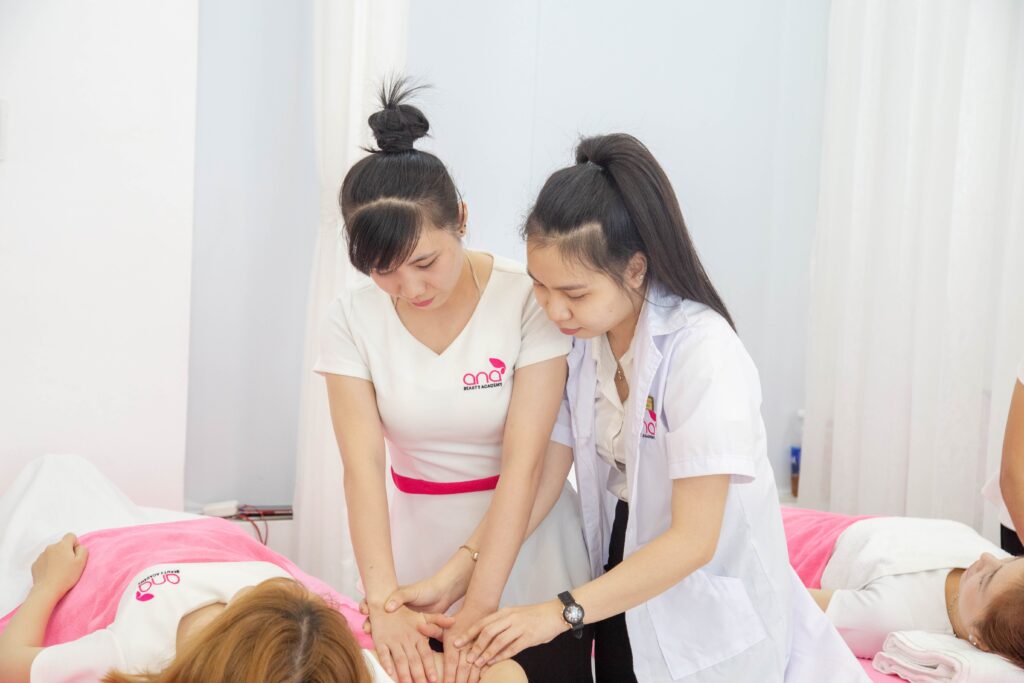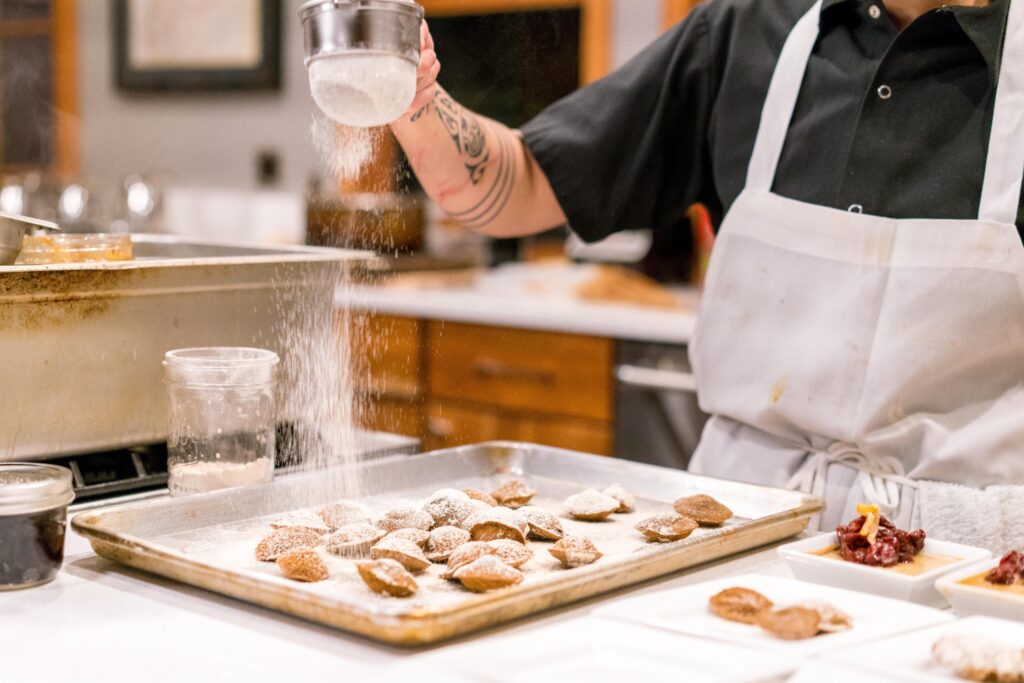In 2011, I left Seattle with just $200 in my pocket to travel the world solo. Today, I'm the founder and creator of The Solo Girl’s Travel Guide, the #1 travel guide book series for women - and the author of The One-Way Ticket Plan.
Meet Alexa
this book has magic powers
The Best Selling Travel Guide Book Series for Women
Join my weekly newsletter - Solo Girls Stories - and learn to travel smarter via my wild mistakes.
Travel Cheaper, Smarter, Safer, and Longer.
Expat, Freelance Work, Hospitality, Long Term Job Abroad, Making Money, Scuba Diving, Solo Female Travel, Studying Abroad, Travel Paths, Yoga
Skill Seeking Abroad – Jobs You Learn While Traveling

Take your passion and turn it into a career by getting accredited or certified in something that allows you to travel the world and find a job anywhere.
In an era where the world is more interconnected than ever before, the pursuit of knowledge knows no borders. Traditional education is no longer confined to the classroom, and the quest for personal and professional growth often leads us to far-flung corners of the globe. Learning skills abroad has emerged as a dynamic fusion of adventure and career advancement, offering a unique opportunity to not only acquire new talents but also embark on unforgettable journeys that transcend the conventional boundaries of learning. Whether it’s mastering the art of scuba diving beneath azure seas, teaching English in diverse cultural landscapes, or honing the healing touch of massage therapy, this article delves into the exciting realm of learning skills abroad and why it has become an irresistible blend of exploration and professional development.
Table of Contents
Yoga teacher
What is a Yoga Teacher?
A yoga teacher is a qualified and trained individual who guides students in the practice of yoga, helping them develop physical strength, flexibility, mental clarity, and inner peace. Yoga teachers lead classes, instruct students in various yoga postures (asanas), breathing techniques (pranayama), meditation, and provide guidance on proper alignment and safety.

Requirements to Become a Yoga Teacher:
The specific requirements to become a certified yoga teacher can vary depending on the type of certification and the school or organization offering the program. However, some common requirements include:
- Yoga Training: Completion of a yoga teacher training program accredited by a recognized yoga alliance or association. These programs typically range from 200 hours (RYT 200) to 500 hours (RYT 500) of training.
- Practical Experience: Many programs require a certain number of hours of practical teaching experience, where you lead yoga classes or workshops under supervision.
- Written Exams: Some teacher training programs include written exams or assessments to evaluate your understanding of yoga philosophy, anatomy, and teaching principles.
- Yoga Practice: A strong personal yoga practice and commitment to ongoing self-study are often expected.CPR and First Aid Certification: Some programs may require certification in CPR and first aid for safety reasons.
Price Range:
The cost of yoga teacher training can vary widely based on factors such as the location, duration, and reputation of the training program. On average, you can expect to pay anywhere from $1,000 to $3,000 for a 200-hour yoga teacher training program. More intensive or specialized programs may have higher tuition fees. Keep in mind that this cost often includes tuition, study materials, and, in some cases, accommodation and meals.
Time Commitment
The time commitment for yoga teacher training can also vary. A standard 200-hour program often spans four to six weeks if taken full-time, while part-time programs may be spread over several months. A 500-hour program typically requires additional time, often several months or more. Practical teaching experience, self-study, and additional coursework may extend the overall time commitment.
Perks of Getting Your Certification Abroad:
Choosing to obtain your yoga teacher certification abroad can offer several advantages:
- Cultural Immersion: Studying yoga in its place of origin, such as India, allows you to immerse yourself in the culture, philosophy, and spirituality that underpin yoga practice.
- Authenticity: Learning from experienced teachers in the land of yoga’s origins can provide an authentic and deep understanding of the practice.
- Diverse Perspectives: International training programs attract students and instructors from around the world, providing exposure to diverse teaching styles, philosophies, and experiences.
- Personal Growth: Living abroad and navigating new environments fosters personal growth, self-discovery, and increased adaptability.
- Networking: Building a global network of yoga practitioners and instructors can lead to new opportunities for teaching and collaboration.
- Adventure: Combining your certification journey with travel and exploration of new places adds an adventurous dimension to your learning experience.
In conclusion, becoming a certified yoga teacher involves comprehensive training and dedication to the practice. The choice to obtain your certification abroad can enhance your yoga journey by offering cultural immersion, diverse perspectives, and personal growth opportunities in addition to your professional development as a yoga instructor.
Where to find the best Yoga Teacher Trainings
Makeup Artist
What is a Makeup Artist Professional?
A makeup artist professional is a skilled and trained individual who specializes in the art of cosmetics and makeup application. Makeup artists work in various settings, including the fashion industry, film and television production, bridal and special event makeup, and the beauty and cosmetics retail sector. They use their expertise to enhance the appearance of their clients, whether it’s for a glamorous photo shoot, a wedding day, a red carpet event, or everyday makeup.

Requirements to Become a Makeup Artist Professional:
The requirements to become a makeup artist professional can vary depending on the type of makeup artistry you want to pursue and your location. However, some common steps and requirements include:
- Education and Training: Many makeup artists start by completing a makeup artist training program or attending a makeup school. These programs can range from short courses to comprehensive diploma programs. Some artists also learn through apprenticeships or self-study.
- Licensing and Certification: Some regions or states may require makeup artists to obtain a cosmetology or esthetician license, which typically involves passing a state-recognized exam. Additionally, industry-recognized certifications, such as those from makeup artist associations, can enhance your credentials.
- Portfolio Building: Aspiring makeup artists often build a portfolio of their work, showcasing their skills and versatility. This portfolio is crucial for attracting clients and employers.
- Experience: Gaining practical experience through internships, freelance work, or assisting established makeup artists is invaluable for honing your skills and building your reputation.
- Continuous Learning: The makeup industry is continually evolving, so ongoing education and staying updated on the latest makeup trends and products are essential for career growth.
Price Range:
The cost of becoming a makeup artist can vary widely based on factors such as the type and length of training, location, and the quality of makeup products and tools you choose to invest in. Makeup artist training programs can range from a few hundred dollars for short courses to several thousand dollars for comprehensive, longer-term programs. Additionally, you’ll need to budget for your makeup kit, which can range from a few hundred to several thousand dollars, depending on your brand choices and the quality of products you prefer.
Time Commitment
The time commitment for becoming a makeup artist depends on your chosen path. Short courses or workshops may last a few days to a few weeks, while comprehensive diploma programs can take several months to complete. After your initial training, your career as a makeup artist may require flexibility in terms of scheduling, as you’ll often work on a freelance basis and may need to accommodate client appointments, events, or productions.
Where to find the best Professional Makeup Schools Abroad
AOF Makeup not only trains you but they also help with work placement. You can study at their schools in London, Paris, New York, Belfast and Dubai.
Massage Therapist
What is a Massage Therapist Professional?
A massage therapist professional is a trained and skilled practitioner who specializes in providing therapeutic massage treatments to promote relaxation, reduce stress, alleviate pain, and improve overall well-being. Massage therapists work in a variety of settings, including spas, wellness centers, healthcare facilities, and as independent practitioners. They use their knowledge of anatomy, physiology, and various massage techniques to tailor treatments to their clients’ specific needs.

Requirements to Become a Massage Therapist Professional:
The requirements to become a massage therapist professional can vary by location and regulatory standards. However, some common steps and prerequisites include:
- Education and Training: Most massage therapists complete a formal education program at an accredited massage school or institution. These programs typically cover topics such as anatomy, physiology, massage techniques, and ethics. The duration of training can vary but often ranges from several months to two years.
- Licensing and Certification: Many regions and countries require massage therapists to obtain a license or certification to practice legally. This often involves passing a standardized exam and meeting specific educational and training requirements.
- Hands-on Experience: Practical experience is essential for honing massage skills. Many aspiring therapists gain experience through internships, clinical rotations, or hands-on practice during their training.
- Continuing Education: Ongoing learning and professional development are crucial for staying updated on the latest massage techniques, industry trends, and healthcare practices.
- Professional Ethics: Massage therapists are expected to adhere to ethical guidelines and maintain client confidentiality, professionalism, and a safe, comfortable environment during treatments.
Price Range:
The cost of becoming a massage therapist can vary depending on factors such as the type of program, location, and any licensing or certification fees. Massage therapy programs can range from a few thousand to several thousand dollars. Additionally, you’ll need to budget for textbooks, massage equipment, and, if applicable, licensing or certification exam fees.
Time Commitment
The time commitment for becoming a massage therapist varies based on the educational program you choose. Programs can range from a few months for shorter courses to up to two years for more comprehensive training. After completing your education, you can work as a massage therapist with flexible scheduling, often accommodating both full-time and part-time positions.
Perks of Getting Your Certification Abroad, Especially in Thailand:
Choosing to obtain your massage therapy certification abroad, particularly in a country like Thailand known for its rich massage traditions, offers numerous advantages:
- Authentic Training: Thailand is renowned for its traditional Thai massage techniques. Learning in the birthplace of this practice provides authentic training and a deep understanding of the art.
- Cultural Immersion: Studying abroad allows you to immerse yourself in Thai culture, gaining insights into the holistic and spiritual aspects of massage therapy.
- Variety of Techniques: Thailand offers a wide range of massage techniques beyond Thai massage, including herbal massages, oil massages, and more. You can become proficient in diverse styles.
Here are three massage therapy training schools abroad that I highly recommend:
Scuba Divemaster
What is a Scuba Divemaster?
A Scuba Divemaster is a highly trained and experienced diver who plays a vital role in the world of recreational scuba diving. This professional is responsible for guiding certified divers, assisting with dive training, ensuring dive safety, and leading dive trips. Scuba Divemasters often work at dive resorts, liveaboard boats, or dive shops in various popular diving destinations around the world.

Requirements to Become a Scuba Divemaster:
Becoming a Scuba Divemaster involves meeting certain prerequisites and completing specific training requirements:
- Certification: To start your journey as a Scuba Divemaster, you must first be a certified Advanced Open Water Diver and a Rescue Diver. These certifications are typically prerequisites for enrolling in a Divemaster training program.
- Experience: Most Divemaster training programs require a minimum number of logged dives, often around 40 to 60 dives, to ensure that you have gained substantial experience underwater.
- CPR and First Aid Certification: CPR (Cardiopulmonary Resuscitation) and First Aid certifications are typically required to ensure you can respond effectively to emergencies.
- Divemaster Training: Enroll in a Divemaster training program offered by a recognized scuba diving agency, such as PADI (Professional Association of Diving Instructors) or NAUI (National Association of Underwater Instructors). This program includes classroom sessions, practical training, and assessments.
- Skills and Knowledge: During Divemaster training, you’ll learn about dive planning, dive theory, underwater navigation, dive leadership, and safety procedures. You’ll also develop your dive skills to a professional level.
- Examinations: To become certified as a Divemaster, you’ll need to pass written exams, demonstrate your practical dive skills, and meet other requirements set by your training organization.
Price Range:
The cost of becoming a Scuba Divemaster can vary depending on several factors, including the location of your training, the diving agency you choose, and the duration of the program. In general, Divemaster training programs can range from a few hundred to several thousand dollars. This cost typically covers training materials, instructor fees, certification fees, and, in some cases, accommodation and equipment rental.
Time Commitment
The time commitment to become a Scuba Divemaster can vary based on the pace of your training and your prior experience. A typical Divemaster program may take anywhere from a few weeks to a few months to complete. It includes a combination of classroom sessions, pool or confined water training, and open water dives. After becoming a Divemaster, you can choose to work part-time or full-time in the diving industry, offering flexibility in your schedule.
Here are 6 beautiful and affordable locations to get your divemaster certificate:
And if you’re interested in becoming a free-diver, here are the freedive schools in Indoneisa that I recommend:
Chef
What is a Chef…really?
Some people might say that you’re born a chef. That you’re born with a love of food like Gordon Ramsey. But at it’s core, a chef is a culinary professional who specializes in the preparation and creation of food. Chefs work in various settings, including restaurants, hotels, catering companies, cruise ships, and more. They are responsible for designing menus, supervising kitchen staff, managing food preparation, and ensuring the quality and presentation of dishes.

Requirements to Become a Chef:
Becoming a chef involves a combination of education, training, and practical experience. Here are the common steps and requirements:
- Culinary Education: Many chefs start by enrolling in a culinary arts program at a reputable culinary school or institute. These programs can vary in duration and curriculum, from short courses to comprehensive degree programs.
- Hands-On Training: Practical experience is essential for becoming a chef. This often includes working in professional kitchens as an apprentice or culinary intern, where you can learn cooking techniques, food safety, and kitchen management.
- Certification: While not always required, certification from organizations like the American Culinary Federation (ACF) can enhance your credibility and job prospects. Certification programs typically involve written and practical exams.
- Specialization: Some chefs choose to specialize in specific culinary niches, such as pastry, baking, or international cuisine. Specialized training and experience may be necessary for these roles.
- On-the-Job Experience: Advancing in the culinary industry often involves gaining years of experience in various kitchen roles, from line cook to sous chef, before becoming an executive chef or head chef.
Price Range:
The cost of becoming a chef can vary significantly depending on factors such as the type of culinary program, its location, and the duration of the training. Culinary school tuition can range from a few thousand dollars for short courses to tens of thousands of dollars for full-degree programs. Additionally, you’ll need to budget for uniforms, knives, textbooks, and other culinary equipment.
Time Commitment
The time commitment to become a chef can vary based on your chosen path. Short culinary courses may last a few weeks to a few months, while diploma or degree programs can take one to four years to complete. Gaining experience and working your way up the culinary ladder can take several years or even decades.
These are the chef schools abroad that I’d recommend to my little sister (if I had one).
Hospitality Professional
I have friends that are bartenders in the fanciest resorts in the world, who make cocktails for rich people on the beach. I also have hobo friends that work for free at hostel bar’s in incredible cities around the world that give them a free place to stay and free food. You can take this career as far or short as you please.
What is the Hospitality Industry?
The hospitality industry encompasses a wide range of businesses and services related to travel, accommodation, dining, and guest services. It includes hotels, restaurants, resorts, event management, tourism agencies, and more. Professionals in the hospitality industry play key roles in ensuring guests have enjoyable, comfortable, and memorable experiences.

Requirements to Enter the Hospitality Industry Abroad:
Entering the hospitality industry abroad typically involves a combination of education, training, and practical experience. Here are the common steps and requirements:
- Education: Many individuals start by enrolling in hospitality management or related degree programs at reputable universities or hospitality schools. These programs cover various aspects of the industry, including hotel management, food and beverage service, event planning, and tourism management.
- Internships and Training: Gaining hands-on experience through internships, apprenticeships, or entry-level positions is crucial. Many students and aspiring professionals work in hotels, restaurants, or event venues to learn the ropes and gain practical skills.
- Certifications: Depending on your career path within the industry, obtaining relevant certifications can be beneficial. For example, individuals interested in hotel management might pursue certifications from organizations like the American Hotel & Lodging Educational Institute.
- Language Skills: In the international hospitality industry, proficiency in multiple languages can be a valuable asset, especially if you plan to work in locations with diverse clientele.
- Customer Service Skills: Strong interpersonal and customer service skills are essential. Hospitality professionals need to be attentive to guests’ needs, problem-solving, and providing excellent service.
- Networking: Building a network of contacts in the hospitality industry, both locally and globally, can open doors to job opportunities and collaborations.
How to Get a Hospitality Job Outside Your Home Country
Again, it depends how far you want to take this career.
Option 1: Literally, go work for free in a hostel somewhere in the world: Mexico, Costa Rica, Cambodia or Germany.
Option 2: Take an Internship
Ireland Internship including Tourism Operations, Sales & Marketing, Hospitality & Hotel Management, and Education Administration
https://www.internhq.com/destinations/ireland/
Option 3: Formally Study
Rome Business School’s Hospitality Programs
Option 4: Study…but not necessarily at University
18-Week Sommilier Program in Argentina
https://www.menteargentina.com/4/Degrees-and-Specializations/25/Intensive-Sommelier-Program
The truth is, you can work anywhere you want with the right approach. I have dozens of friends working around the world, building incredible careers off of skills like these.
A word of caution – an except from The One-Way Ticket Plan:
Nonetheless, a word of caution is in order—recognize the potential competitiveness of landing a job in these fields. Simply obtaining a divemaster certification in Thailand, for instance, doesn’t guarantee immediate employment in the same region. These roles can be fiercely competitive. Before investing $2,000 in an accreditation program, devise a well-structured plan. Delve into how you can effectively convert this training into a tangible job. Reach out to training schools to inquire about their post-program job placement support.
Make a plan. Once you have the plan, don’t let anyone that doesn’t dream as big as you tell you it’s dumb. They’re dumb. I believe in you. Go create a life you can’t wait to wake up to. No more excuses.
The
One-Way
Ticket Plan
this book has magic powers
Find and Fund Your Purpose while Traveling the World
Want to contribute to the blog? I love to feature the perspective of other solo female travelers.
Application
Blog Contribution
I'm a bestselling author, hotel reviewer and pickleball player. I teach women how to travel the world solo without going broke or getting kidnapped.
In 2011, I left Seattle with just $200 in my pocket to travel the world solo. Today, I'm the founder and creator of The Solo Girl’s Travel Guide, the #1 travel guide book series for women - and the author of The One-Way Ticket Plan.